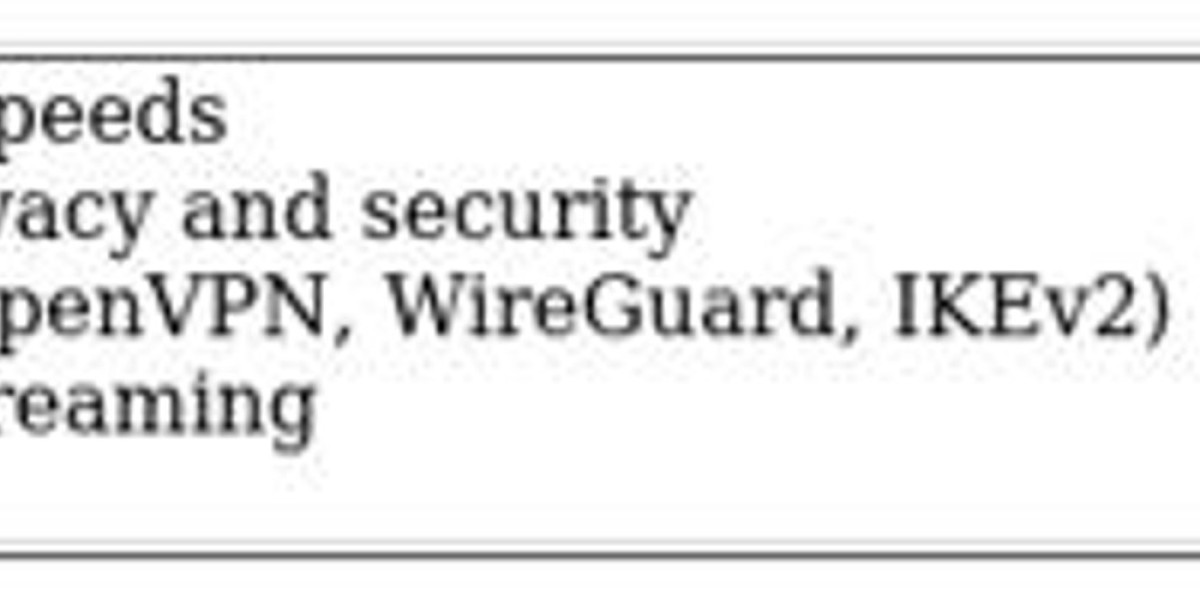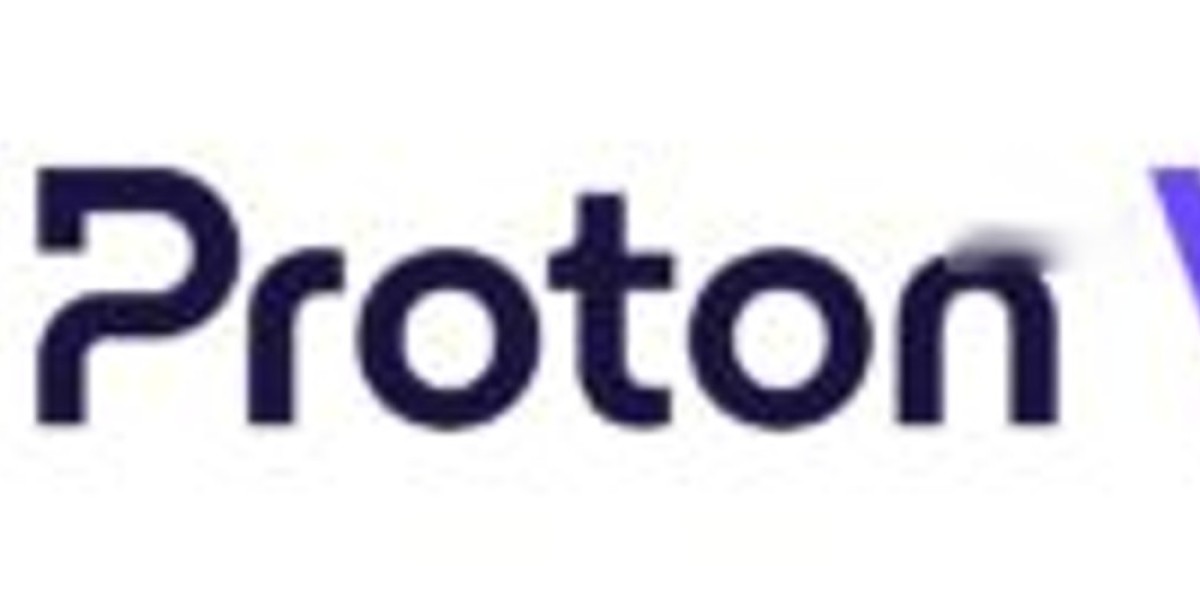VPN Comparison: PIA vs AtlasVPN
Selecting a VPN service solely based on promotional material can be a daunting task.
To truly assess which VPN aligns with our requirements, it’s essential to delve deeper than just advertisements.
In this analysis, we will explore the strengths and weaknesses of two VPN providers: Private Internet Access (PIA) and AtlasVPN.
Our goal is to evaluate their features and determine which service stands out as the superior choice.
When comparing the two VPN services, it's clear that AtlasVPN offers more competitive pricing than Private Internet Access (PIA).
Regardless of the subscription length you choose, AtlasVPN consistently provides lower rates, ensuring you save money in every situation.
In terms of money-back policies, both AtlasVPN and PIA adhere to the typical 30-day guarantee. This means that no matter which VPN you select, you'll benefit from the same refund period.
When evaluating platform compatibility, Private Internet Access (PIA) stands out slightly ahead.
Both PIA and AtlasVPN offer applications for major operating systems like macOS, Windows, iOS, and Android.
Moreover, they both have a native app for Linux, which is relatively rare among VPN services.
However, PIA takes the lead by providing router support, a feature that AtlasVPN lacks.
In addition, PIA offers browser extensions compatible with Firefox, Chrome, and Opera, enhancing its usability.
Both VPN services come with built-in ad and tracker blockers as part of their subscription packages.
They also feature split tunneling, allowing users to choose which applications or URLs utilize the VPN while others connect directly to the ISP.
This functionality is managed on an individual app basis rather than through specific URL configurations.
PIA allows for up to 10 simultaneous connections, which is quite generous compared to many other VPN providers.
On the other hand, AtlasVPN boasts support for unlimited simultaneous connections, setting a high standard that even more accommodating providers might find challenging to match.
Kudos to AtlasVPN for this impressive offering.
Based on the data presented, it's evident that AtlasVPN outperforms Private Internet Access (PIA) in terms of speed.
Historically, PIA has shown faster performance, which leaves room for optimism regarding its future speed tests.
However, at this moment, it's undeniable that AtlasVPN takes the lead when it comes to speed.
For those who prioritize VPN speed, AtlasVPN is the recommended choice over PIA.
When comparing streaming capabilities, Private Internet Access (PIA) offers limited options. It successfully connects to Netflix in both the US and UK, along with BBC iPlayer, but those are the main features in its streaming arsenal.
In contrast, AtlasVPN shines in this area. It boasts compatibility with a wider array of streaming platforms. Following its acquisition by Nord Security, the parent company of NordVPN, users can anticipate even greater streaming support in the future, given NordVPN's reputation as a top-tier service for streaming.
For those prioritizing streaming when choosing a VPN, AtlasVPN clearly outperforms PIA. If streaming is a key factor in your VPN selection, consider checking our list of recommended providers tailored for streaming needs.
However, both PIA and AtlasVPN fall short in terms of accessibility from China. AtlasVPN has explicitly indicated that it does not plan to offer connection capabilities from within the country. With the increasing challenges posed by China's internet censorship, many VPN services, including these two, have shifted their focus elsewhere.
In summary, regardless of whether you opt for PIA or AtlasVPN, accessing services from China is not feasible at this time. For insights on VPNs that successfully operate in China, refer to our dedicated article on the best providers in that region.
Both Private Internet Access (PIA) and AtlasVPN offer user-friendly desktop applications that are visually appealing and easy to use.
When it comes to PIA, its interface feels somewhat congested due to its smaller size, and the elongated design may not appeal to everyone. However, it remains functional and intuitive for users.
On the other hand, AtlasVPN boasts an equally simple and navigable app. The layout features a left-side panel for seamless navigation. Users can select servers either from a list or based on specific tasks, such as streaming. For optimal streaming performance, it is advisable to choose one of AtlasVPN's servers that are specifically optimized for this purpose.
The PIA application features a somewhat compact layout, which may feel elongated to some users. However, it remains user-friendly for the majority of VPN users.
When it comes to selecting servers, PIA utilizes a list format exclusively. This enables users to easily search for servers by geographical area and further refine their selection down to individual cities.
Additionally, the app offers a convenient option to automatically connect to the fastest available server within your chosen region.
Both VPN applications offer users the ability to adjust their preferences through a dedicated settings section.
Private Internet Access (PIA) opts for a more streamlined layout for its settings interface.
It presents a wider array of options, which can make the setup process more intricate.
This complexity is beneficial for experienced users who enjoy fine-tuning their configurations.
However, newcomers might feel overwhelmed by the abundance of settings available.
On the other hand, AtlasVPN features a more straightforward menu with limited settings.
This simplicity makes it easier for users to navigate and adjust their preferences without much hassle.
While this approach is user-friendly, advanced users might find it lacking in the depth of customization that PIA offers.
The choice ultimately comes down to the trade-off between a customizable experience and user-friendliness.
Each VPN provider embodies its unique design philosophy in how they approach settings and configurations.
Both Private Internet Access and Atlas VPN offer mobile applications compatible with iOS and Android devices.
These apps are user-friendly and well-optimized for smaller screens, ensuring a smooth experience for users on the go.
Determining the size of the networks for Private Internet Access (PIA) and AtlasVPN can be challenging, as neither service discloses exact figures.
However, it's reasonable to infer that PIA boasts a more extensive network compared to AtlasVPN. For instance, PIA operates servers in more than twice the number of countries as AtlasVPN.
On the other hand, AtlasVPN offers a respectable network, albeit smaller than PIA's. Some users may favor a more compact network while others might prioritize a broader selection. Ultimately, the decision comes down to individual preferences.
In my view, both providers offer ample VPN servers to cater to the needs of most users.
Here’s a breakdown of the countries serviced by each provider:
In our comparison of VPN providers, both Private Internet Access (PIA) and AtlasVPN prioritize secure protocols.
PIA offers support for OpenVPN, WireGuard, and IKEv2, while AtlasVPN includes WireGuard and IKEv2 in its offerings.
Among these protocols, IKEv2, OpenVPN, and WireGuard stand out as the most secure options available today.
OpenVPN, in particular, is recognized for its flexibility, and it would be beneficial for AtlasVPN to incorporate OpenVPN support into its service.
Both PIA and AtlasVPN employ robust 256-bit AES encryption, utilizing 4096-bit RSA keys for IKEv2 connections, which is also applicable for PIA's OpenVPN.
WireGuard, on the other hand, implements modern ciphers that are recognized for their high level of security.
VPN Comparison: AtlasVPN vs PIA
Both VPN services feature a kill switch across all their applications, whether on mobile or desktop platforms.
Additionally, they both utilize proprietary no-logging DNS servers within the VPN tunnel by default.
The primary distinction between the two lies in Private Internet Access's compatibility with OpenVPN, which is a somewhat minor difference.
Both Virtual Private Network (VPN) services under consideration are headquartered in the United States, a country that is a member of the 5 and 14 Eyes alliances. These alliances facilitate intelligence sharing among allied nations, which may raise concerns about privacy for potential users. However, it’s important to note that both providers prioritize user privacy and maintain minimal data collection practices. If no data is stored, there is nothing to disclose.
AtlasVPN includes a notable feature called Safeswap servers. This technology automatically alters your IP address whenever you access a new website or application, significantly enhancing your anonymity online. With the constant change of the server's IP, tracking your online activities becomes increasingly difficult. Moreover, after being acquired by Nord Security, the parent company of NordVPN, AtlasVPN is expected to adopt a privacy policy that mirrors NordVPN’s robust standards, suggesting promising improvements in the near future.
On the other hand, Private Internet Access (PIA) boasts one of the most comprehensive and transparent privacy policies in the industry. The limited data it collects includes:
-
Email address for account management and to prevent abuse.
-
Payment information solely for processing transactions through third-party payment processors, without retaining full credit card details.
-
State or territory along with zip code for tax purposes.
-
Anonymized data necessary for service delivery and enhancement, such as server performance metrics and user capacity.
In summary, both PIA and AtlasVPN demonstrate commendable privacy practices, with PIA currently holding a slight edge due to its more rigorous policy. However, the competition remains close, and it will be intriguing to observe how AtlasVPN's alignment with NordVPN influences its privacy measures in the future.
Using shared IP addresses offers enhanced privacy compared to dedicated ones.
When users connect to a VPN server with shared IPs, they all utilize the same IP address provided by the server.
This collective use of a single IP obscures individual users' identities, making it significantly challenging to trace any specific online activity back to a single user.
Both Private Internet Access (PIA) and AtlasVPN prioritize user privacy by defaulting to shared IP addresses for their customers.
Additionally, both services come equipped with features to block ads and malware.
They employ a method known as DNS blackholing for this purpose.
In this process, DNS requests are compared against a database of recognized ad and malware sites.
If a request corresponds to a known harmful domain, it is blocked; otherwise, the request is allowed to proceed.
This feature is something I personally find invaluable and I believe more VPN services should implement it in the future.
Both Private Internet Access (PIA) and AtlasVPN offer email support and maintain a searchable knowledge base on their websites.
While PIA previously provided live chat assistance, this feature appears to have been removed.
Thus, when it comes to support options, both services are on equal footing.
To evaluate their customer service efficiency, we reached out to each provider by sending three distinct questions via email.
The first two inquiries were straightforward, designed to gauge the basic knowledge of their support teams.
The third question was intentionally more complex, aimed at testing their depth of understanding specific to VPN functionalities.
It's important to note that the third question varied between the two providers due to differences in feature support.
The findings from our correspondence are detailed below:
Both Private Internet Access (PIA) and AtlasVPN impressed me with their customer support, responding to my inquiries in less than 24 hours.
PIA, in particular, had an even quicker turnaround, answering my questions in under three hours.
The responses from both services were courteous and directly addressed my concerns.
I appreciated that they both followed up by asking if I needed further assistance.
However, PIA stood out with its exceptional response time and the depth of its answers.
The information provided was not only thorough but also included links to relevant support documents, showcasing a strong grasp of VPN functionalities.
While I commend PIA for its excellent service, I found both companies to offer professional support.
It was pleasantly surprising to see AtlasVPN excel in this area, especially since previous reviews, including one by my colleague, highlighted customer service as a significant weakness for them.
It's encouraging to witness their improvement in this aspect.
In the comparison between AtlasVPN and Private Internet Access (PIA), AtlasVPN emerges as the preferable choice.
Both VPN providers have their strengths, yet PIA struggles with speed issues that have diminished over time. Given that a VPN should ideally enhance your connection, it’s challenging to recommend one that may hinder your internet speed, regardless of its other strengths.
When it comes to streaming, AtlasVPN significantly outperforms PIA. Although PIA permits up to ten simultaneous connections, AtlasVPN takes the lead with its unlimited connection feature. Furthermore, AtlasVPN offers more competitive pricing compared to PIA, which, while affordable, doesn’t match AtlasVPN's value.
On the other hand, PIA excels in areas like customer support, privacy practices, and protocol options, notably supporting OpenVPN, a feature AtlasVPN lacks. However, these advantages are not sufficient to outweigh AtlasVPN’s overall benefits.
The advantages of AtlasVPN can be summarized as follows: it offers superior streaming capabilities, consistently faster speeds, and allows for unlimited simultaneous connections. While PIA has stronger privacy and security measures, AtlasVPN maintains commendable privacy standards and is expected to enhance its security practices, aligning with those of NordVPN soon.
Overall, AtlasVPN is more economical and offers greater value for the average user. Both providers are commendable, but for those seeking the best return on investment, AtlasVPN is the clear winner.
What is a Netflix VPN and How to Get One
A Netflix VPN is a virtual private network designed to enable users to access region-restricted content on Netflix by connecting to servers in different countries. By utilizing a Netflix VPN, individuals can bypass geographic limitations and enjoy a broader selection of movies and TV shows that may not be available in their region. To use a Netflix VPN, one must select a dependable VPN provider that supports streaming, set up an account, install the VPN application, and connect to a server in the desired location before logging into Netflix to explore its diverse content offerings.
Why Choose SafeShell as Your Netflix VPN?
If you want to access region-restricted content using a Netflix VPN, you may want to consider the SafeShell VPN . SafeShell VPN offers a range of benefits that make it an excellent choice for unblocking Netflix. With high-speed servers specifically optimized for Netflix, you can enjoy your favorite shows and movies in high definition without any interruptions or buffering. These servers ensure lightning-fast connection speeds, providing seamless and buffer-free playback for an enhanced streaming experience.
Moreover, SafeShell VPN allows you to connect up to five devices simultaneously, supporting a variety of operating systems such as Windows, macOS, iOS, Android, Apple TV, Android TV, and Apple Vision Pro. This flexibility means you can enjoy netflix unblocked on any device you prefer. Additionally, the exclusive App Mode feature allows you to access and enjoy content from multiple regions at the same time, giving you the freedom to explore a wide range of entertainment options. With SafeShell VPN's lightning-fast speeds and top-level security via the proprietary "ShellGuard" protocol, you can stream with peace of mind, knowing your data is safe and your online privacy is protected.
A Step-by-Step Guide to Watch Netflix with SafeShell VPN
To enjoy Netflix content from different regions using SafeShell Netflix VPN , follow these straightforward steps:
-
Start by subscribing to SafeShell VPN; visit the SafeShell VPN website at https://www.safeshellvpn.com /, choose a plan that suits your budget and needs, and then click on "Subscribe Now".
-
Next, download and install SafeShell VPN; go back to the website, select your device (Windows, macOS, iOS, Android, etc.), and download the appropriate app or software version.
-
After installation, launch the SafeShell VPN app and log in to your account. Choose the APP mode to enhance your Netflix viewing experience.
-
Then, select a VPN server; browse through the list of available servers and pick one located in the region whose Netflix content you wish to access, such as the US, UK, or Canada, and click on "Connect" to establish a connection.
-
Finally, open the Netflix app or visit the Netflix website, log in with your Netflix account, and enjoy streaming content available in the selected region.







